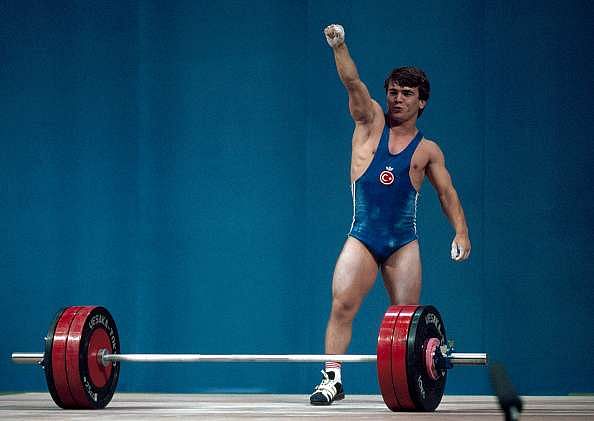
The Titans of the Ruck: A Look at Rugby’s Greatest Teams of All Time
Rugby, a sport steeped in tradition, fierce competition, and unwavering camaraderie, boasts a rich history filled with legendary teams that have left an indelible mark on the game. Defining the "greatest" is subjective, influenced by era, playing style, and the sheer volume of dominant performances. However, certain teams have consistently risen above the rest, demonstrating sustained excellence and shaping the very fabric of the sport. This article explores some of rugby’s most dominant teams throughout history, examining their impact and the factors contributing to their success.
The All Blacks (New Zealand): The Unrivaled Standard-Bearers
No discussion of rugby’s greatest teams is complete without mentioning the All Blacks. Their dominance is almost mythical, a testament to a unique blend of skill, physicality, and a fiercely proud national identity. Their consistent success over decades, punctuated by periods of absolute invincibility, sets them apart. Their winning percentage, consistently among the highest in international rugby, speaks volumes about their sustained excellence.
Several factors contributed to the All Blacks’ enduring success. The rigorous selection process, emphasizing both skill and character, creates a highly competitive environment. The emphasis on the "haka," a traditional Māori war dance, instills a sense of unity and cultural pride, creating a powerful psychological advantage. Their innovative and adaptable playing style, combining power with finesse, has allowed them to consistently adapt to evolving game tactics.
Specific eras have witnessed unparalleled dominance. The All Blacks of the 1980s, featuring legendary players like Sir Brian Lochore and Sean Fitzpatrick, established a formidable reputation. The team of the early 2000s, under the leadership of Tana Umaga and Richie McCaw, redefined attacking rugby, setting new standards for speed and precision. More recently, the All Blacks under Steve Hansen continued this legacy, achieving remarkable consistency and showcasing a blend of power and intricate playmaking. Their ability to maintain a high level of performance across generations underscores their status as the benchmark against which all other teams are measured.
The Springboks (South Africa): The Masters of Physicality
The Springboks, with their powerful forward pack and relentless defense, represent a different style of rugby dominance. Their history is intertwined with the socio-political landscape of South Africa, with periods of triumph and controversy. Their victory in the 1995 Rugby World Cup, under the inspirational leadership of Francois Pienaar, became a symbol of national unity and reconciliation.
The Springboks’ strength lies in their traditional emphasis on the scrum and lineout, utilizing powerful forwards to dominate possession and create opportunities for their backs. Their physicality and resilience, coupled with a disciplined defensive system, make them incredibly difficult to break down. Their World Cup victories in 1995, 2007, and 2019 highlight their ability to perform under pressure and deliver when it matters most. The 2007 World Cup triumph, under Jake White’s coaching, saw them overcome significant challenges to claim the coveted Webb Ellis Cup.
While their style might not always be as aesthetically pleasing as some of their rivals, the Springboks’ unwavering commitment to physicality and strategic game management has made them a perennial force in international rugby.
The Wallabies (Australia): The Unpredictable Underdogs
The Wallabies, known for their flair and attacking prowess, have consistently challenged the dominance of the All Blacks and Springboks. Their history is marked by periods of both exhilarating victories and heartbreaking near-misses. Their ability to produce exceptionally talented individuals, renowned for their creative attacking play, has always kept them in contention for the top spot.
The Wallabies’ playing style often emphasizes running rugby, making use of the speed and skill of their backs to break down defenses. Their victories in the 1991 and 1999 Rugby World Cups demonstrate their capacity to rise to the occasion and deliver under immense pressure. Their matches against the All Blacks are always fiercely contested, often resulting in high-scoring encounters that showcase the best of rugby union.
While their consistency hasn’t always matched that of the All Blacks or Springboks, their moments of brilliance and their unpredictable nature make them a perpetually exciting team to watch and a constant threat to the top teams.
Other Notable Teams: A Legacy of Excellence
Beyond the aforementioned giants, several other teams have consistently challenged for top honors and left their mark on the history of the game. The British and Irish Lions, a touring team comprised of players from England, Ireland, Scotland, and Wales, represent a unique challenge, facing off against the Southern Hemisphere giants on their home turf. Their tours, though infrequent, are highly anticipated events, showcasing the best of northern hemisphere rugby.
Teams like France, England, and Ireland have also enjoyed periods of dominance, consistently pushing the boundaries of the game and producing legendary players. France, known for their flair and attacking flair, have always been unpredictable opponents, capable of producing stunning victories against even the most formidable opponents. England, with their powerful forward play and structured game plan, have also had moments of outstanding success. Ireland, consistently improving their game over the past decade, have also risen to challenge the top teams, demonstrating their growing strength and prowess.
Conclusion: A Legacy of Competition and Excellence
The history of rugby is rich with compelling narratives of triumphs, defeats, and unwavering dedication. While the All Blacks have arguably set the highest benchmark for sustained excellence, the Springboks, Wallabies, and other top teams have consistently pushed the boundaries of the sport, creating a legacy of thrilling competition and inspiring generations of players. The evolution of the game continues, with new teams emerging and challenging the established order, ensuring that the future of rugby remains as exciting and unpredictable as its illustrious past. The pursuit of greatness in rugby is a constant, an ongoing narrative of skill, strategy, and the unwavering spirit of competition.



